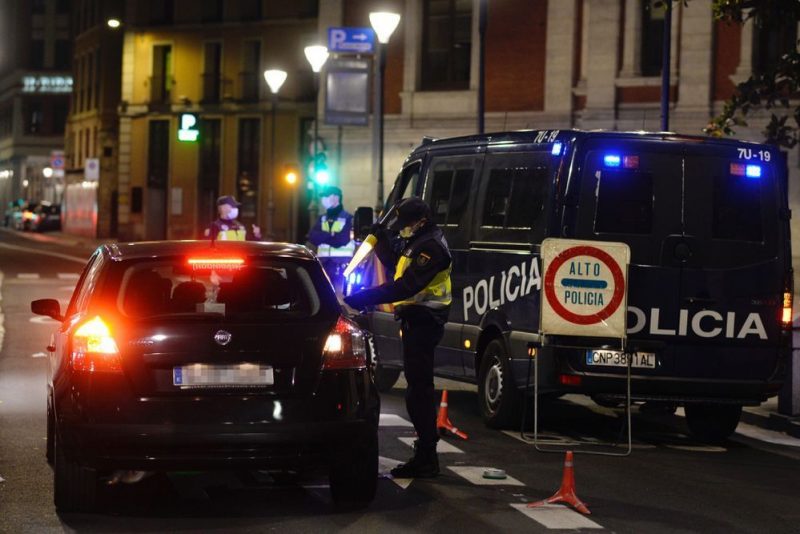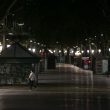It will be in their hand for example that the night curfew begins at ten at night or at twelve which places them in a completely different panorama according to the experts consulted who warn that it is not the panacea against the virus taking into account that there are already many restrictions on nightlife throughout the territory
The decree approved this Sunday by the Council of Ministers gives a legal tool to the autonomous communities to take measures without going through the courts but it forces them little
It gives the possibility of limiting social gatherings and making perimeter confinements but only establishes the curfew in the entire territory except the Canary Islands which lasts by default from 2300 to 600 but which communities can move up or down one hour
The experts consulted see with good eyes that the measures are no longer at the mercy of the courts of justice which on some occasion have overthrown them and that they can be taken in an agile way but they also point out that there may be very different scenarios
If you impose a curfew from midnight you are limiting a very specific activity in a very specific population group such as drinking bottles among young people and house parties reflects the epidemiologist Javier del Águila who does not see a great difference between this measure and the one already in force in many communities which force bars and restaurants to close at 11pm
A limitation of movements at 10pm however would have much more effect in broader layers Each community will have to decide based on its epidemiological studies
We know that there are many outbreaks in the social sphere but I have my doubts that most of them are at night especially after twelve says Pedro Gullón from the Spanish Society of Epidemiology who thinks that with a community transmission like the one that already exists in much of the territory it would be more useful to make teleworking compulsory whenever necessary There you are avoiding a lot of mobility that people have to take public transport
Daniel López Acuña a public health expert and former director of emergencies for the World Health Organization believes that the state of alarm was extraordinarily necessary but is concerned that there is no obligation for communities to meet the criteria he established the Interterritorial Council of the National Health System last Thursday In case of not complying with them the Government should impose them he says
The council approved with the votes in favor of all the communitiesExcept for Madrid and the Basque Country which abstained a response plan that serves as a guide for taking measures based on the increased incidence of the epidemic and the response capacity of each territory
It is based on eight main and 20 secondary indicators with which the communities have to establish the risk of each municipality with more than 10000 inhabitants Set four levels extreme high medium and low There is still no official assessment of which locations are at extreme risk
But if the scale approved in the interterritorial area is applied to the average data of the autonomous communities seven would have already exceeded this threshold Aragon CastillaLa Mancha Castilla y León Navarra Madrid Catalonia and La Rioja in addition to Ceuta and Melilla
Already at level three it proposed the limitation to a maximum of six people in social gatherings that can now be imposed with a curfew in addition to capacity restrictions both in hotels wakes or sports facilities Level 4 extreme did not establish specific restrictions but rather suggested taking extraordinary measures for which according to the document a request for a state of alarm might be necessary
Now that it is in force there is not really a guide that tells the territories with extreme risk what measures to take beyond the curfew and the limitation of meetings
Perhaps some measures should be set within this extreme risk says Gullón who believes that if the first measures that are now being taken do not take effect progress could be made beyond teleworking which is recommended but not established in no case as obligatory closing the hotel business as Catalonia has done The next step could be nonessential businesses to end if the situation were very serious with the schools
Although I think this is not going to happen and it will try to avoid it at all costs
This epidemiologist does not rule out that in some extreme risk areas it is necessary to resort to home confinements that in no case would be like those of March when that first state of alarm against the pandemic forced them to stay at their homes at night the morning to the entire population
Then it was forbidden even to go out for a walk something that did a lot of psychological damage to people and that the evidence has shown totally unnecessary ditch










